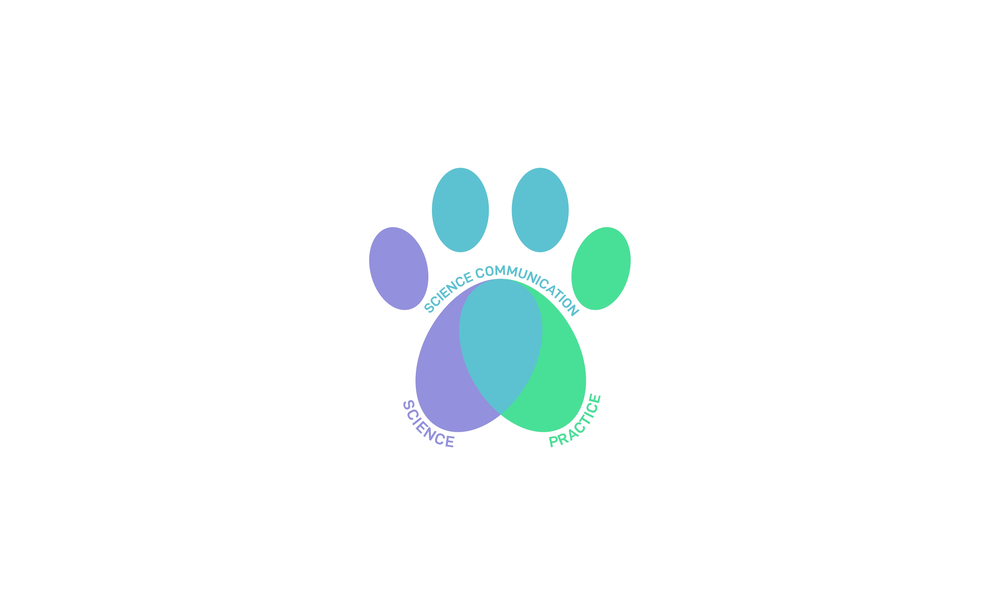Table of Contents:
Understanding Senior Dog Care: Embracing Your Dog's Golden Years
When we talk about senior dog care, it is essential to recognize that our dogs age much like we do. The threshold at which our loyal companions are considered seniors can vary. Generally, smaller breeds may enter their senior years around 7-9 years of age, while larger breeds might be seen as seniors from around 5-7 years. However, defining seniority in dogs depends on multiple factors including breed, size, and individual health.
Embracing your dog's golden years involves a shift in care to accommodate their changing needs. The aim is to maintain quality of life, ensuring that our senior dogs are not only comfortable but also happy and healthy. This stage is natural and should be met with love and patience, adjusting our routines to align with their evolving physical and mental requirements.
Appropriate senior dog care encompasses a range of practices designed to monitor and support your dog's wellbeing. This includes looking out for early signs of age-related health conditions, adapting their living environment for ease of movement, and balancing their diet for optimal nutrition. It is quite a tender journey, one that allows us to repay the years of loyalty and affection our dogs have generously provided us.
As caregivers, it is our responsibility to ensure we understand and implement the best care practices for our ageing friends, paving the way for a happy and contented twilight of their lives.
The Right Diet for Your Aging Canine: Nutrition and Weight Management
Nutrition plays a pivotal role in the care regimen of a senior dog. As dogs age, their metabolism slows down, necessitating adjustments in their calorie intake. An integral component of senior dog care is managing their weight since an optimal weight can significantly reduce the risk of health issues such as joint stress, heart disease, and diabetes.
To support an ageing canine's diet, it's worth considering foods formulated specifically for seniors that address their unique dietary needs. These often have a balanced mix of proteins, fats, and fibres catered to be gentler on their digestive system and to foster lean body mass maintenance.
A balance of regular, gentle exercise and careful feeding can contribute to keeping a senior dog at a healthy weight. It's a good practice to discuss diet changes with a veterinary professional who can provide personalized advice based on your dog's specific health profile, offering guidance on the appropriate portion sizes and types of food.
Never underestimate the value of water for your senior dog. Ensure they have constant access to fresh water, as dehydration can pose a significant health risk, particularly in older dogs.
In conclusion, adjusting your senior dog's diet is more than just reducing food quantity; it's about strategic, mindful nutritional control to extend their vitality and well-being into their older years.
Managing the Needs of Aging Dogs
| Benefits | Considerations |
|---|---|
| Increased bonding time between dog and owner | Potential for age-related health issues |
| Understanding and adapting to a dog's comfort needs | May require a special diet and frequent veterinary visits |
| Opportunity to provide a calm and loving environment | Decreased mobility and activity levels |
| Less demanding in terms of exercise compared to younger dogs | Increased costs for healthcare and adaptive equipment |
| Can benefit from a settled routine and predictability | Need for close monitoring and potential for chronic pain management |
Exercise for Older Dogs: Keeping Them Active Safely
Regular exercise remains crucial for older dogs, though the intensity and type should be modified to suit their ageing bodies. Safe, suitable activities can help maintain their muscle tone, flexibility, and overall well-being whilst contributing positively to weight management.
Low-impact exercises such as gentle walks or slow-paced fetch games can be beneficial. It's important to gauge your dog's endurance and comfort, adjusting the duration and frequency of these activities accordingly.
Additionally, simple training exercises at home, like Caveletis, Cookie Turns, or Sit to Stand - provide not only physical engagement but also mental stimulation for your senior companion.
It's advisable to consult with a vet prior to initiating an exercise plan, especially if your dog has a history of illness or injury. They may recommend specialised exercises or even physiotherapy options like aquatic therapy, which can be gentle on their joints yet very effective.
Regular exercise for your ageing canine friend, within their comfort limits, is a fantastic way to enrich their senior years, keeping them active and engaged.
Mental Stimulation: Keeping Your Senior Dog's Mind Sharp
Just as physical exercise is vital for the health of senior dogs, mental stimulation is equally important to keep their minds alert and active. As canines grow older, it's not uncommon for their cognitive functions to decline. To combat this, engaging your dog in activities that stimulate their brain is key to preserving their cognitive health.
One effective way to provide mental stimulation is through interactive toys that challenge your dog to solve puzzles for treats. These toys encourage thinking and problem-solving, which can be particularly engaging for a dog's mind.
Training sessions that reinforce basic commands, or teach new, simple tricks, are also excellent for keeping an older dog’s mental faculties sharp. Keep these sessions short and positive, with plenty of praise and treats, to ensure they are a source of enjoyment and not stress.
Varied walking routes and occasional new experiences can also provide mental refreshment. Smelling new scents, seeing different sights, and experiencing various textures underfoot can all contribute to a senior dog's mental well-being.
Remember, the goal of mental stimulation is to enrich your senior dog's life by providing a supportive environment where they can continue to learn and experience new things, albeit at a gentler pace.
Home Adjustments for Senior Dog Comfort and Safety
As dogs reach their senior years, the comfort and safety of your home environment becomes increasingly important. Adjusting your living space to accommodate your dog's ageing needs can make a significant difference to their quality of life.
Consider introducing raised feeding stations to alleviate the strain on your dog's neck and joints, making meal times more comfortable. Beds should provide ample cushioning to support ageing bones and joints and be easily accessible, with low sides for easy entry and exit.
To assist dogs with reduced mobility, ramps or steps can be used in place of jumping onto furniture or into vehicles. Additionally, laying down non-slip mats can prevent slips and falls on hard surfaces, helping to maintain your senior dog's confidence in getting around.
Ensure that their resting area is away from drafts and maintains a steady, comfortable temperature, as older dogs can be more sensitive to changes in climate.
Adapting your home doesn't have to be a costly affair but can profoundly impact your senior dog's daily comfort and safety, helping them to navigate their later years with ease.
Regular Health Checks: The Importance of Veterinary Visits for Older Dogs
Regular veterinary visits become increasingly vital as your dog enters their senior years. These health checks serve as a preventive measure to catch any emerging issues early, potentially extending your dog’s lifespan and improving their quality of life.
Annual or bi-annual check-ups, depending on your dog's health, can ensure that they remain up to date with vaccinations, parasite control, and dental hygiene. These visits are also an opportunity for vets to conduct thorough examinations, which may include blood work and urine analysis to uncover hidden health concerns.
More frequent assessments may be necessary for dogs with known health issues or breeds prone to certain age-related conditions. Dogs often hide discomfort or illness well, hence, professional evaluations are crucial in assessing your dog’s health beyond what might be visibly noticeable.
A strong rapport with your vet means you have a trusted advisor to guide you through your senior dog's care needs, from diet changes to managing age-related conditions. Being proactive with veterinary care is one of the best ways to support your ageing canine's well-being.
Common Health Issues in Aging Dogs and How to Address Them
Recognizing and addressing common health issues in ageing dogs is essential for maintaining their well-being as they grow older. Conditions such as osteoarthritis, hearing loss, and vision impairment are more prevalent among senior canines.
For joint-related conditions like osteoarthritis, managing discomfort through pain relief medication, prescribed by your vet, combined with gentle exercise, can improve your dog’s mobility. Other supportive measures include orthopaedic beds and keeping your dog warm and comfortable during colder periods.
Sensory degradations, such as hearing or vision loss, require adjustments in the way you communicate with your dog. Using hand signals for commands or ensuring your dog can always see you when you are speaking to them can mitigate the effects of their reduced senses. Extra care should be taken to keep your home environment safe for a dog with these limitations.
Veteran canines may also face an increased risk of renal issues or incontinence. Providing easy access to outdoor areas for frequent bathroom breaks and investing in waterproof bedding can assist in managing these challenges.
It's important to tackle these age-related health concerns with empathy and understanding, holding regular discussions with your vet to tailor a suitable care plan. Managing your dog's health proactively can greatly contribute to their comfort and happiness in their senior years.
Pain Management Strategies for Senior Canines
Addressing discomfort in senior dogs involves a multifaceted approach to pain management. It is crucial to create a strategy that considers all aspects of their well-being, balancing medication with gentle lifestyle changes.
One aspect of this strategy involves pharmaceutical treatments, such as nonsteroidal anti-inflammatory drugs (NSAIDs), which must always be prescribed by a vet. These can help manage inflammation and offer relief from daily discomfort.
Alongside medication, alternative therapies may provide additional comfort. Options such as acupuncture, massage, or physical therapy have shown beneficial effects by improving circulation and reducing pain intensity.
Incorporating appropriate supplements into your dog's diet can also play a role in pain management. Ingredients like glucosamine or omega-3 fatty acids have been noted for their potential to support joint health and reduce inflammation.
Lastly, keeping your senior dog's living area warm and providing a supportive bed can alleviate joint stiffness and ensure their physical comfort throughout the day.
By collaborating with a veterinary professional, you can devise a comprehensive pain management plan that maximizes your aging dog's comfort and mobility.
Dental Care for Senior Dogs: Maintaining Oral Health
Oral health is a key, but often overlooked, aspect of senior dog care. Maintaining healthy teeth and gums is crucial for preventing pain, infection, and related systemic health issues.
Regular teeth cleaning, whether at home or professionally, helps to prevent the build-up of plaque and tartar, which can lead to periodontal disease. Specialized dental chews and toys can contribute to this routine by naturally scraping away soft tartar deposits.
For more thorough dental care, your vet may recommend professional cleanings or procedures to address any dental issues. It's important to schedule these cleanings as preventive care, rather than waiting for dental diseases to progress.
Additionally, monitoring your senior dog's breath and oral habits can help catch dental concerns early. Persistence of bad breath, difficulty eating, or pawing at the mouth may indicate oral discomfort and should be evaluated by your vet.
With consistent dental care and regular check-ups, your senior dog can enjoy their golden years without the burden of oral discomfort, contributing to their overall health and happiness.
The Role of Supplements in Senior Dog Care
As part of a holistic approach to senior dog care, dietary supplements can play a supportive role in addressing the specific needs of ageing canines.
Supplements formulated with glucosamine and chondroitin are commonly recommended to support joint health, potentially easing the symptoms of arthritis and improving mobility. Omega-3 fatty acids, commonly found in fish oils, are another popular supplement, recognized for their anti-inflammatory effects and potential benefits to cognitive function and skin health.
Antioxidants, like vitamins E and C, may help counteract oxidative stress and bolster the immune system, which can be advantageous for senior dogs with declining health. Probiotics are another consideration, supporting digestive health and ensuring a balanced gut microbiome.
It is important that any decision to include supplements in your dog's regime should be made in consultation with a veterinary professional, who can recommend products based on evidence and tailor doses to your dog’s specific health profile.
Ensuring the safe and effective use of supplements can complement your senior dog's diet and contribute positively to their overall well-being.
End-of-Life Care: Supporting Your Dog in Their Final Chapter
The latter stages of a senior dog's life are a time for gentle care and deep compassion. End-of-life care, or palliative care, focuses on providing comfort and dignity to your dog as they approach their final days.
Pain management, as previously discussed, becomes paramount in ensuring your dog maintains the best quality of life possible. Comfort measures such as a warm, accessible bed, and maintaining a calm home environment can help ease your companion's journey.
Appetite changes are common in end-of-life stages, so providing palatable, easy-to-eat foods can encourage your dog to continue eating which is essential for their strength and comfort.
It is important to maintain regular communication with your vet during this time. They can offer invaluable guidance on how to manage symptoms and make tough decisions regarding quality of life and humane euthanasia when the time comes.
Above all, offering your presence, gentle touch, and reassurance can provide the emotional support your dog needs to navigate this challenging phase. It is a time for reflection on the joy and companionship they've brought into your life and to ensure their needs are met with the utmost love and care.
Creating a Daily Routine for Your Senior Dog
Establishing a consistent daily routine can significantly benefit your senior dog, providing them with a sense of security and predictability as they navigate their older years.
Structuring meal times, walks, and rest periods at regular intervals helps to maintain your dog's internal clock. Predictable schedules are comforting for dogs experiencing the uncertainties that come with ageing, such as diminished senses and cognitive changes.
Within this routine, it is important to incorporate those regular, low-impact exercises which can be tailored to your dog's ability and comfort level. Scheduled playtime not only exercises the body but also the mind, keeping your senior dog engaged.
Adequate resting time is just as crucial as activity, allowing your dog's body to recover and rejuvenate. Ensure they have a quiet, comfortable place to retreat without disturbance.
A tailored routine is not about rigidity but about providing a framework that supports your senior dog's health and happiness, adapting as their needs evolve over time.
The Emotional Aspects of Caring for an Ageing Dog
Caring for an ageing dog is not just a physical commitment but an emotional journey as well. As a guardian to a senior dog, you may encounter an array of emotions, from concern and compassion to reflection and gratitude.
The bond between a person and their dog often deepens during these senior years. Recognising and responding to their changing emotional needs is as important as meeting their physical requirements. Senior dogs may seek more comfort and reassurance from you as they cope with age-related changes.
It is also common for caregivers to experience anticipatory grief as they face the eventual loss of their companion. Processing these emotions is essential, and support from friends, family, or pet bereavement groups can be beneficial.
Celebrating the happy moments and cherishing the time spent together can create lasting memories that honour the life of your beloved dog. Despite the challenges, providing love and care during your dog's twilight years can be a profoundly fulfilling experience.
When to Seek Professional Help for Your Senior Dog
There comes a point in the journey of senior dog care when professional help may become necessary. Knowing when to seek advice from a vet can be crucial for your dog's health and well-being.
Unexpected changes in your senior dog's behaviour or mobility, such as sudden disorientation, loss of appetite, or difficulty standing, warrant immediate consultation with a vet. These signs could indicate underlying health issues that require attention.
Routine observations may reveal subtle signs of discomfort, like persistent whining or reluctance to engage in once-pleasurable activities. Continuous observation of such shifts is key for early intervention, which can vastly improve outcomes.
As a dog ages, they may face increased risks for chronic health conditions. If you notice any worrisome symptoms, or if there is a decline in general health despite holistic care at home, it's time to speak with a veterinary professional. They can perform the necessary diagnostics and provide advanced care or treatment options tailored to your senior dog's needs.
Proactive engagement with your vet ensures that any significant health concerns are not overlooked and that your senior dog can enjoy their later years with the highest quality of life possible.
Conclusion: Celebrating and Caring for Your Senior Dog
As we conclude our exploration of senior dog care, it is important to reflect on the rewarding journey of caring for an ageing companion. The golden years of a dog's life can be filled with tranquil moments, continued learning and deep emotional bonds.
Providing comprehensive care, from maintaining regular health checks to ensuring a loving and comfortable home environment, underscores our enduring commitment to our faithful friends. Embracing their slower pace allows us to appreciate each day with gratitude and mindfulness.
For all the joy and unconditional love dogs bring into our lives, it is our privilege to support them as they age. By integrating strategies for mental and physical health, recognising when professional help is needed, and adapting to their evolving needs, we can offer the care and dignity they deserve in their senior stage.
Let us celebrate each moment with our senior dogs, cherishing the unique ways they enrich our lives and making their golden years as fulfilling and comfortable as possible.
FAQ on Caring for Elderly Dogs
At what age is a dog considered a senior?
The age at which a dog is considered a senior can vary depending on size and breed. Small breeds may become seniors at 7-9 years of age, whereas large breeds can be considered seniors from 5-7 years. It is important to consider individual health factors as well.
What diet adjustments are necessary for senior dogs?
Senior dogs require diets lower in calories but rich in high-quality proteins and fibres to maintain weight and muscle mass. It is advisable to consult a professional for personalised advice on portion sizes and specific dietary needs.
How can I help my senior dog maintain a good quality of life?
Helping your senior dog maintain a good quality of life includes providing a balanced diet, ensuring regular gentle exercise, offering comfortable resting areas, and adapting the home environment with ramps and non-slip mats. Regular healthcare checks are also vital.
What are common health issues in senior dogs?
Common health issues in senior dogs include osteoarthritis, dental problems, vision and hearing loss, renal issues, and cognitive decline. Professional guidance is recommended to manage these conditions effectively.
How can I ensure my senior dog is getting enough mental stimulation?
Mental stimulation for senior dogs can be provided through puzzle toys, varied walking routes, socialisation, and regular short training sessions. These activities should be tailored to suit the dog's cognitive abilities and physical condition.




